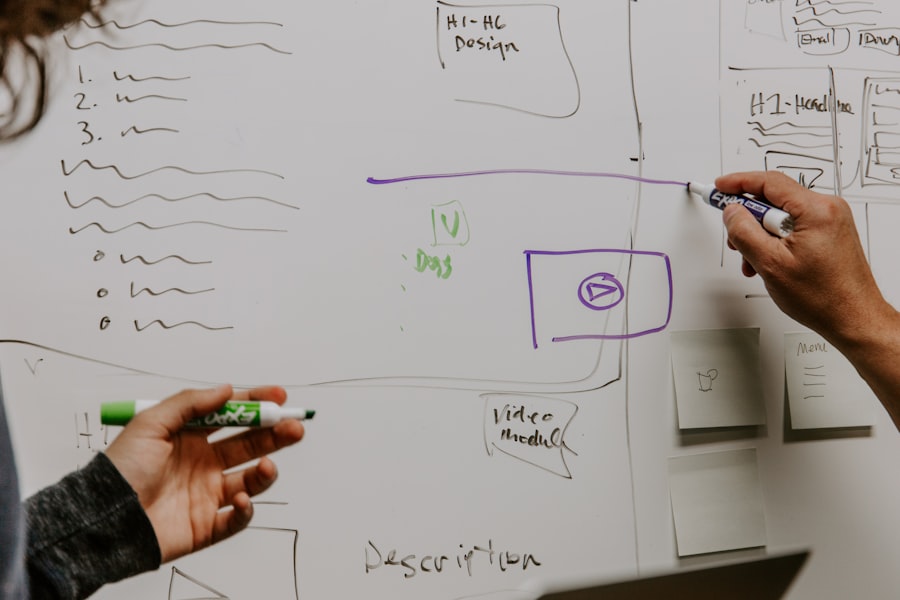Leadership is a complex and multifaceted concept encompassing various qualities and skills. Effective leaders demonstrate integrity, honesty, and ethical behavior. They inspire and motivate others through their actions and words, leading by example.
Good leaders communicate effectively, listen actively, and empathize with others. They build trust and rapport with team members, creating a positive and inclusive work environment. Successful leaders make tough decisions and take calculated risks.
They think critically and strategically, adapting to changing circumstances. Effective leaders delegate tasks and empower team members to take ownership of their work. They provide guidance and support while allowing team members the freedom to innovate and problem-solve independently.
Leaders must balance assertiveness with empathy, inspiring and empowering their team to achieve their full potential. They remain calm and composed under pressure, handling difficult situations professionally and managing conflict constructively. Good leaders are open-minded and adaptable, learning from mistakes and failures.
They continuously improve their leadership skills and commit to lifelong learning and self-improvement. In summary, effective leaders inspire, motivate, and empower others while remaining humble, open-minded, and dedicated to personal growth. They possess a combination of interpersonal skills, strategic thinking abilities, and a commitment to ethical behavior that enables them to guide their teams successfully.
Key Takeaways
- A good leader possesses qualities such as integrity, empathy, resilience, and the ability to inspire and motivate others.
- Identifying and developing your strengths is crucial for personal and professional growth, and can be achieved through self-reflection and seeking feedback from others.
- Effective communication and interpersonal skills are essential for building strong relationships and creating a positive work environment.
- Building and leading a team requires the ability to delegate tasks, provide support and guidance, and foster a collaborative and inclusive culture.
- Decision-making and problem-solving skills are vital for navigating challenges and achieving organizational goals.
- Managing conflict and difficult situations involves active listening, empathy, and the ability to find mutually beneficial solutions.
- Continuous learning and self-improvement are key for staying adaptable and relevant in a constantly evolving work environment.
Identifying and developing your strengths
Understanding Your Strengths
By identifying your strengths, you can leverage them to maximize your impact as a leader. This may involve honing specific skills or seeking out opportunities that allow you to showcase your strengths. It may also involve seeking feedback from others to gain a better understanding of your strengths and how you can best utilize them.
Continuous Learning and Self-Improvement
Developing your strengths as a leader involves continuous learning and self-improvement. This may involve seeking out mentorship or coaching from more experienced leaders, or pursuing additional education or training in areas where you feel you could improve. It may also involve seeking out opportunities for growth within your current role or seeking out new challenges that allow you to further develop your skills as a leader.
Embracing Feedback and Adaptation
Developing your strengths as a leader also involves being open to feedback and willing to adapt and grow. This may involve seeking out constructive criticism from others to gain a better understanding of areas where you can improve. It may also involve being open to new ideas and perspectives, and being willing to take risks in order to further develop your leadership skills. Overall, identifying and developing your strengths as a leader is an ongoing process that requires self-awareness, openness to feedback, and a commitment to continuous learning and growth.
Effective communication and interpersonal skills

Effective communication and interpersonal skills are essential for any leader. A good leader is someone who is able to communicate clearly, concisely, and persuasively. They are able to articulate their vision and goals in a way that inspires and motivates others, and they are able to listen actively and empathetically to the needs and concerns of their team members.
Effective communication also involves being able to adapt your communication style to different audiences, whether it be one-on-one interactions or large group presentations. In addition, effective interpersonal skills are essential for building trust and rapport with your team members. A good leader is someone who is able to build strong relationships with their team members based on mutual respect, trust, and understanding.
They are able to create a positive and inclusive work environment where everyone feels valued and heard. Effective interpersonal skills also involve being able to resolve conflicts in a constructive manner, and being able to provide constructive feedback in a way that is supportive and empowering. Furthermore, effective communication and interpersonal skills also involve being able to build strong relationships with stakeholders outside of your immediate team.
This may involve building relationships with other departments within your organization, or it may involve building relationships with external partners or clients. Effective communication with external stakeholders involves being able to represent your team or organization in a professional manner, while also being able to listen actively and empathetically to the needs and concerns of others. Overall, effective communication and interpersonal skills are essential for building trust, rapport, and strong relationships both within your team and with external stakeholders.
Building and leading a team
Building and leading a team involves creating a positive work environment where team members feel valued, motivated, and empowered. A good leader is someone who is able to build a diverse team with complementary skills and strengths. They are able to create a culture of collaboration, innovation, and continuous improvement, where everyone feels empowered to contribute their ideas and take ownership of their work.
Building a strong team also involves providing guidance, support, and mentorship to help team members grow and develop their skills. Leading a team also involves setting clear goals, expectations, and priorities for the team. A good leader is someone who is able to articulate a clear vision for the team’s success, while also providing the necessary resources and support for the team to achieve their goals.
They are able to provide regular feedback and recognition for their team members’ contributions, while also holding them accountable for their performance. In addition, leading a team involves being able to make tough decisions when necessary. This may involve making difficult choices about resource allocation or prioritization of projects, or it may involve addressing performance issues within the team.
A good leader is someone who is able to make these decisions in a fair and transparent manner, while also being open to feedback from their team members. Furthermore, leading a team also involves being able to adapt to changing circumstances and lead through uncertainty. This may involve being able to navigate through periods of change or crisis with grace and professionalism, while also providing stability and reassurance for the team.
Overall, building and leading a team involves creating a positive work environment where everyone feels valued, motivated, and empowered to achieve their full potential.
Decision-making and problem-solving skills
Decision-making and problem-solving skills are essential for any leader. A good leader is someone who is able to make tough decisions in a timely manner, based on sound judgment and critical thinking. They are able to weigh the pros and cons of different options, while also considering the potential impact on their team or organization.
Effective decision-making also involves being able to gather relevant information from multiple sources, while also being open-minded and adaptable in the face of uncertainty. In addition, problem-solving skills are essential for addressing challenges or obstacles that arise within the team or organization. A good leader is someone who is able to identify root causes of problems, while also being able to generate creative solutions that address the underlying issues.
Effective problem-solving also involves being able to collaborate with others in order to generate new ideas or perspectives, while also being open to feedback from others. Furthermore, decision-making and problem-solving skills also involve being able to learn from mistakes or failures. A good leader is someone who is able to reflect on past decisions or actions in order to gain insights that can inform future decisions.
They are able to remain open-minded and adaptable in the face of new information or changing circumstances. Overall, decision-making and problem-solving skills are essential for any leader in order to navigate through uncertainty or complexity with grace and professionalism.
Managing conflict and difficult situations

Remaining Calm and Empathetic
A good leader remains calm under pressure and is empathetic towards the needs and concerns of all parties involved. This enables them to address conflicts in a constructive manner, leading to resolution rather than escalation.
Facilitating Open Communication
Managing conflict also involves facilitating open communication between conflicting parties to gain a better understanding of the underlying issues. A good leader listens actively to all perspectives involved in the conflict, helping parties find common ground or compromise.
Providing Stability and Reassurance
In addition, a good leader provides stability and reassurance for the team during periods of change or crisis. They remain composed under pressure, providing guidance and support for their team members. By doing so, they are able to address conflict and difficult situations in a constructive manner, leading to resolution rather than escalation.
Continuous learning and self-improvement
Continuous learning and self-improvement are essential for any leader in order to stay relevant in an ever-changing business environment. A good leader is someone who is committed to lifelong learning in order to further develop their skills as a leader. This may involve seeking out mentorship or coaching from more experienced leaders in order to gain new perspectives or insights.
In addition, continuous learning involves seeking out opportunities for growth within your current role or seeking out new challenges that allow you to further develop your skills as a leader. This may involve pursuing additional education or training in areas where you feel you could improve. Furthermore, continuous learning also involves being open-minded and adaptable in the face of new information or changing circumstances.
A good leader is someone who is willing to take risks in order to further develop their leadership skills. Overall, continuous learning and self-improvement are essential for any leader in order to stay relevant in an ever-changing business environment.
If you’re looking to develop your leadership skills, you may also be interested in learning about recruiting, selecting, and training for success. This article from Careers Help provides valuable insights into the process of building a successful team and developing the necessary skills to lead them effectively. Understanding the recruitment and training process can help you become a more effective leader in your organization.
FAQs
What are leadership skills?
Leadership skills are the abilities and qualities that enable an individual to guide, motivate, and influence others to achieve a common goal or vision.
Why are leadership skills important?
Leadership skills are important because they enable individuals to effectively manage teams, make strategic decisions, and inspire others to reach their full potential. Strong leadership skills are essential for success in both professional and personal settings.
How can I develop leadership skills?
You can develop leadership skills through various methods such as seeking out leadership opportunities, taking on new challenges, seeking feedback, learning from mentors, and participating in leadership development programs or workshops.
What are some examples of leadership skills?
Examples of leadership skills include effective communication, decision-making, problem-solving, emotional intelligence, adaptability, resilience, empathy, and the ability to inspire and motivate others.
Can anyone develop leadership skills?
Yes, anyone can develop leadership skills with dedication, self-awareness, and a willingness to learn and grow. Leadership skills can be developed and honed over time through practice and experience.



